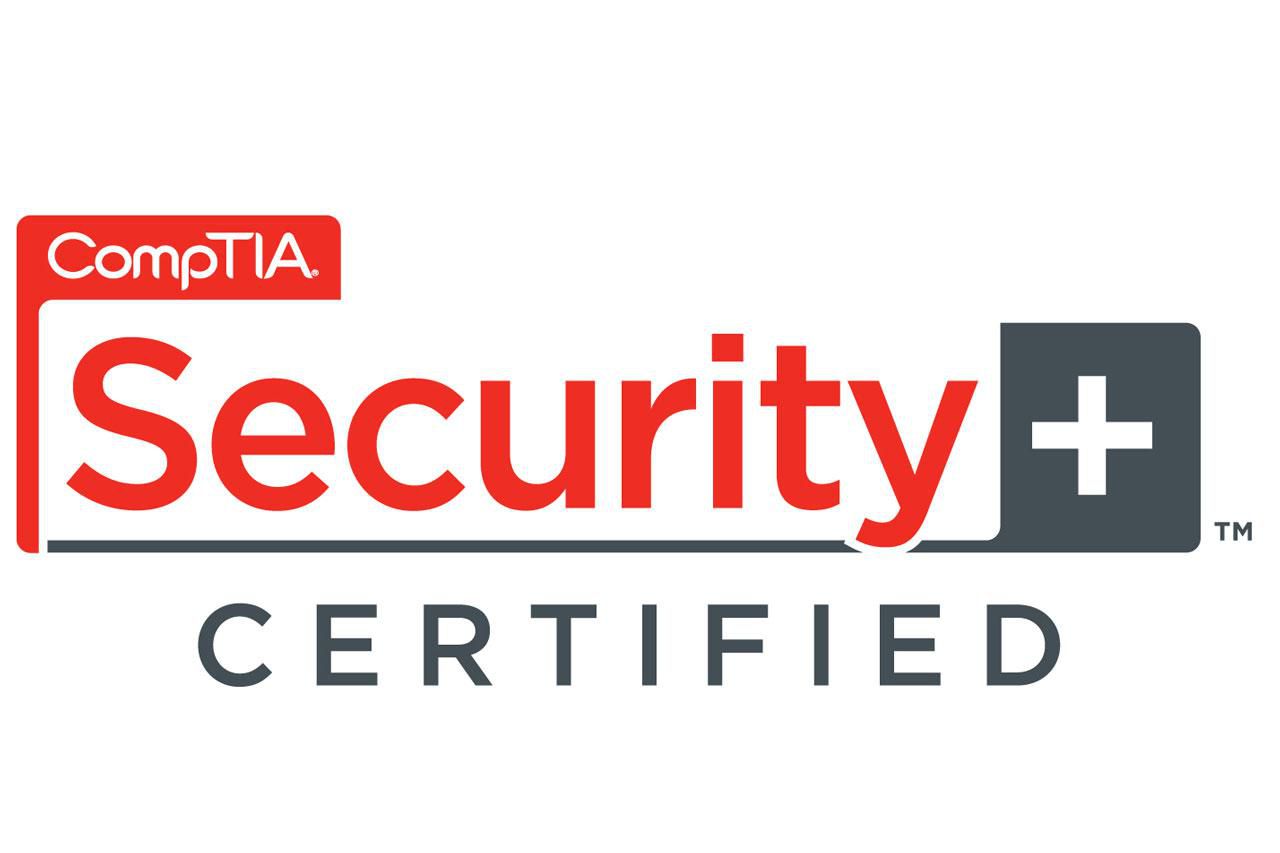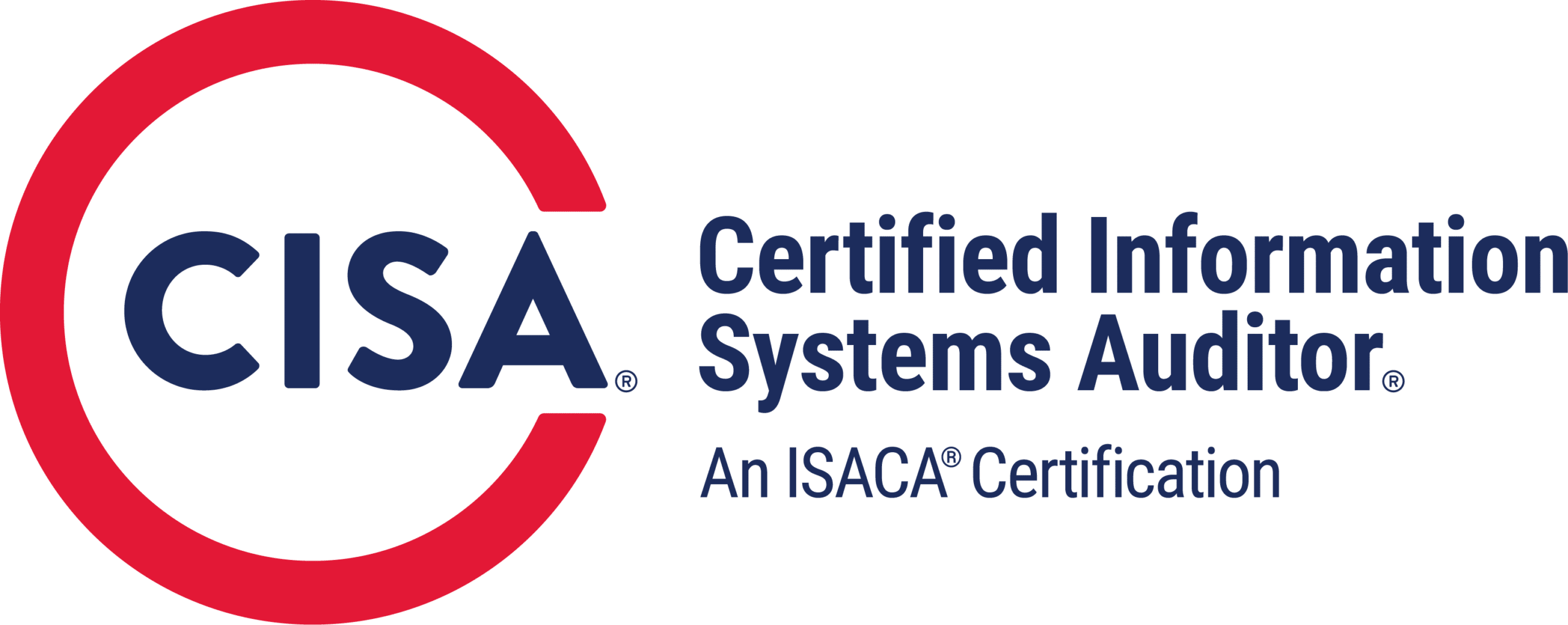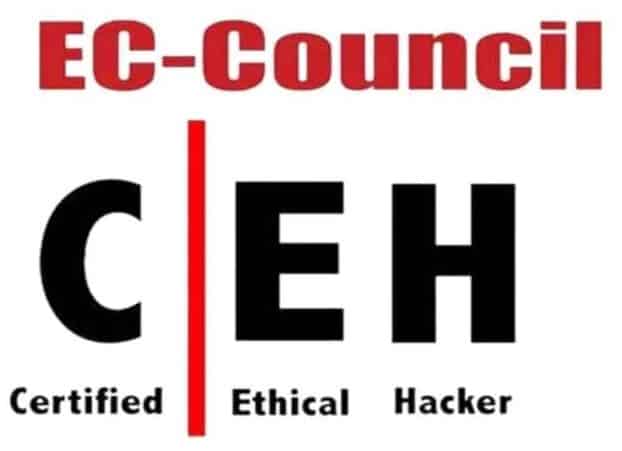In an age where digital threats are ever-evolving, pursuing the best cybersecurity certificate can make a significant impact on one’s career path in the rapidly expanding industry of information security. A well-chosen certification showcases a professional’s dedication to their field, depth of knowledge, and commitment to staying current with best practices. This guide will discuss the top cybersecurity certifications to consider for 2024, including CompTIA Security+, Certified Information Systems Security Professional (CISSP), Certified Information Security Manager (CISM), Certified Ethical Hacker (CEH), Cisco Certified CyberOps Associate, Certified Information Systems Auditor (CISA), and Offensive Security Certified Professional (OSCP). These choices should align with one’s career goals, whether starting out or advancing in areas like cloud security, ethical hacking, or risk management. Earning a certified cybersecurity professional accreditation offers value through industry recognition, global acknowledgment of proficiency, potential salary boosts, and opportunities in both private and public sectors. We have a separate section on our website where we cover each of these certificates in greater detail. Don’t miss out on our preparation guide where we cover the best and fastest way to prepare and pass the exam on your first attempt.
Key Takeaways
- Top cybersecurity certifications of 2024 include CompTIA Security+, CISSP, CISM, CEH, Cisco Certified CyberOps Associate, CISA, and OSCP.
- Investing in cybersecurity certification training ensures credibility, in-depth knowledge, and staying ahead in the competitive job market.
- Vendor-neutral and vendor-specific certifications each offer unique advantages for professionals in different stages of their cybersecurity careers.
- Online cybersecurity certifications provide flexibility and accessibility, while in-person learning facilitates interactive hands-on experiences.
- Adapting to emerging trends like cloud infrastructure, automation, and ethical hacking is crucial for professionals seeking to secure their future in the cybersecurity field.
- Long-term benefits of obtaining relevant cybersecurity certifications include continuous career growth, evolving job roles, and staying ahead of industry changes.
- Employers increasingly value certifications that demonstrate up-to-date knowledge and alignment with current cybersecurity challenges.
The Rising Importance of Cybersecurity Expertise
As the landscape of digital threats evolves, cybersecurity expertise is becoming increasingly critical. Companies and governmental agencies repeatedly seek candidates with verified skills in safeguarding sensitive data, requiring certifications as part of their hiring criteria. The top cybersecurity certifications, particularly those aligned with 2024 demands, stand as a testament to a professional’s capabilities and can lead to significant salary increments.
As someone with over 20 years of experience in cybersecurity and holder of most the the certifications mentioned in this article, I can assure you that you won’t go wrong with any of them.
To stay ahead in this competitive job market, candidates must select certifications that are in demand, such as the best cybersecurity certifications for career advancement, and are pivotal in their path of professional development. Some of the highest-paying cybersecurity certifications can not only boost one’s income but also validate a candidate’s command over essential skills and knowledge in the field. Let us examine the cybersecurity certifications in demand for 2024 and their impact on salary and job opportunities.
| Certification | Average Salary | Job Titles |
|---|---|---|
| CompTIA Security+ | $76,000 | Security Analyst, Network Administrator |
| Certified Information Systems Security Professional (CISSP) | $106,000 | Security Manager, IT Director |
| Certified Information Security Manager (CISM) | $108,000 | Security Manager, IT Compliance Officer |
| Certified Ethical Hacker (CEH) | $84,000 | Penetration Tester, Security Consultant |
| Offensive Security Certified Professional (OECP) | $90,000 | Cybersecurity Analyst, Penetration Tester |
As the table suggests, obtaining a highly sought-after certification can lead to lucrative job opportunities and improved income potential. Given the increasing need to secure sensitive data, the demand for certified professionals is projected to remain strong for years to come. In particular, cybersecurity certifications are expected to grow in significance as more organizations prioritize information security and adopt advanced technologies. By pursuing the right certifications, IT professionals can potentially secure a brighter future in the cybersecurity landscape.
In an interconnected world that is increasingly dependent on the digital realm, the importance of having skilled and certified cybersecurity professionals cannot be overstated. Candidates equipped with the essential knowledge, expertise, and certifications will be better prepared to navigate the ever-changing cybersecurity landscape and secure their future.
Assessing the Best Cybersecurity Certification for Your Career Path
Choosing the best cybersecurity certification varies according to an individual’s level of expertise, desired specialty, and career aspirations. Cybersecurity certification programs cater to different career stages, from foundational certifications like CompTIA Security+ to advanced ones like CISSP. These qualifications validate various skills, from basic knowledge to specialized competencies across diverse domains such as cloud, application, and information security. Deciding on a certification should consider job requirements, professional standing, and vendor-specific skills.
Understanding Different Certification Levels and Specialties
There is a multitude of cybersecurity certifications available, each targeting specific knowledge levels and areas of expertise. Beginners can benefit from foundational certifications, while experienced professionals may opt for specialized certifications catering to their career goals. Below is a list of popular cybersecurity certifications, categorized by their target audience:
Best cybersecurity certification for beginners:
Best cybersecurity certification for career advancement:
- CISSP – Certified Information Systems Security Professional
- CEH – Certified Ethical Hacker
- CISM – Certified Information Security Manager
Best cybersecurity certification for specialized roles:
- CCSP – Certified Cloud Security Professional
- OSCP – Offensive Security Certified Professional
- CRISC – Certified in Risk and Information Systems Control
Emerging Trends in Cybersecurity and Certification Impact
The cybersecurity landscape continues to evolve in response to new threats and the growth of digital infrastructure. Professionals in the field must adapt to stay relevant in an ever-changing job market, and obtaining the proper online cybersecurity certifications is a necessity. In this section, we take a closer look at the emerging trends in cybersecurity and the certifications expected to be in high demand.
Essential Cybersecurity Certifications to Consider in 2024
In 2024, several cybersecurity certifications are set to stand out in the tech industry, allowing professionals to harness their skills in various cybersecurity domains and adapt to the evolving landscape. These certifications play a critical role in enabling professionals to address the continuous changes in the tech landscape and meet the growing challenges in cybersecurity.
Below is a list of essential certifications that will help professionals excel in designing cloud architectures, ethical hacking, network automation, project management, and data governance:
- AWS Certified Solutions Architect
- Certified Ethical Hacker (CEH)
- Cisco Certified DevNet Professional
- Microsoft Certified Azure Solutions Architect Expert
- Google Certified Professional Cloud Architect
- Project Management Professional (PMP)
- Certified Data Professional (CDP)
By pursuing these certifications, professionals can demonstrate their expertise in various cybersecurity domains and increase their value in the job market. Apart from in-person learning, many online cybersecurity certifications enable professionals to acquire these credentials at their own pace.
| Certification | Domain | Learning Path |
|---|---|---|
| AWS Certified Solutions Architect | Cloud Architecture | Online and In-Person |
| Certified Ethical Hacker (CEH) | Ethical Hacking | Online and In-Person |
| Cisco Certified DevNet Professional | Network Automation | Online and In-Person |
| Microsoft Certified Azure Solutions Architect Expert | Cloud Architecture | Online and In-Person |
| Google Certified Professional Cloud Architect | Cloud Architecture | Online |
| Project Management Professional (PMP) | Project Management | Online and In-Person |
| Certified Data Professional (CDP) | Data Governance | Online and In-Person |
Professionals must research and choose the cybersecurity certification programs that best align with their career goals and help them stay relevant in the job market. Selecting the right certification, while staying informed about emerging trends, will surely pave the way for long-term success in the cybersecurity field.
A Deep Dive into Vendor-Neutral vs. Vendor-Specific Certifications
With a multitude of cybersecurity certifications available, professionals might find themselves weighing the pros and cons of pursuing vendor-neutral certifications or vendor-specific certifications. Each type of certification comes with its own set of advantages and drawbacks.
The Pros and Cons of Specialization
Vendor-neutral certifications, such as those offered by CompTIA, furnish a wide range of foundational knowledge that applies to various technologies and systems in the industry. They cater to a broader range of skills, ensuring a professional’s adaptability in diverse working environments. In contrast, vendor-specific certifications like the Cisco Certified CyberOps Associate focus on particular products and solutions. They are a good choice for professionals who seek in-depth knowledge and skills specifically tailored to a particular vendor’s offerings.
“Specialization has its advantages, such as detailed knowledge of a vendor’s offerings, but it may limit versatility compared to vendor-neutral certifications, which are widely recognized and cater to a broader skillset.”
To better understand the distinctions, let’s consider the benefits and drawbacks of vendor-neutral and vendor-specific certifications:
| Type | Benefits | Drawbacks |
|---|---|---|
| Vendor-Neutral Certifications | In-depth knowledge and skills for specific vendor products and solutions for professionals working within a specific environmentOften preferred by some employers who use the vendor’s solutions | Recognized and valued by a wide range of employersFoundation for working with various technologies and systems adaptable skill set for changing market demands |
| Vendor-Specific Certifications | In-depth knowledge and skills for specific vendor products and solutions for professionals working within a specific environment are preferred by some employers who use the vendor’s solutions | This may limit versatility and adaptability across diverse environments not be as widely recognized or valued by employers who do not use the vendor’s products |
Ultimately, the choice between vendor-neutral and vendor-specific certifications should align with an individual’s career goals and preferred work environment. By carefully evaluating the benefits and drawbacks of each type, professionals can make informed decisions and invest in certifications that pave the way for a rewarding cybersecurity career.
Investing in Cybersecurity Certification Training: Is It Worth It?
The question of whether it is worth investing in cybersecurity certification training is a common one for individuals looking to break into or advance their careers in the cybersecurity industry. While there are free resources and certifications available, these often lack the strong industry recognition, structured learning path, and in-depth knowledge provided by paid courses and certifications. Weighing the pros and cons of investing in these programs, and considering the potential benefits they offer, can help make an informed decision about pursuing a certified cybersecurity professional status.
Benefits of investing in cybersecurity certification training:
- Structured learning path: Elements of paid cybersecurity certification training, such as coursework materials, practical exams, and instructional support, provide a clear and effective curriculum designed to target specific knowledge areas and skill sets.
- Support from industry experts: Paid training grants access to valuable insights, guidance, and mentorship from professionals who have acquired the expertise and credentials in the field.
- Increased credibility: Many companies prefer candidates with recognized and accredited certifications, as they provide assurance of an individual’s competency and commitment to industry standards.
- Networking opportunities: Investing in cybersecurity certification training often comes with networking opportunities, such as webinars, workshops, and conferences, enabling interaction with other professionals in the industry.
- Limited recognition: Free cybersecurity certifications might not carry the same weight as highly-regarded, paid certifications from established industry institutions.
- Less comprehensive: Free resources are unlikely to deliver the same depth of knowledge and practice as paid training, potentially leaving gaps in your skillset.
- Inconsistency in quality: The quality of free courses and certifications can vary significantly, and they may not cover the same material or hold up to industry benchmarks.
While free cybersecurity certifications can provide a valuable starting point, investing in professional cybersecurity certification training is likely to yield a greater return on investment in the long run, contributing to career advancement and industry reputation.
In summary, investing in cybersecurity certification training is a worthwhile pursuit for professionals determined to excel in cybersecurity. By providing a solid foundation of skills and knowledge, support from industry experts, and stronger credibility in the job market, accredited courses and certifications unlock your potential as a certified cybersecurity professional. Ultimately, individuals should consider their career goals and assess the value offered by investing in these programs when making a training decision.
Calculating the Return on Investment for Cybersecurity Certifications
When evaluating the return on investment for the highest-paying cybersecurity certifications, it is crucial to take into account the career advancement opportunities, industry recognition, and potential salary increases that come alongside these valuable credentials. As cybersecurity continues to be a top priority for organizations globally, professionals holding cybersecurity certifications which are in demand in 2024 will secure themselves a competitive edge and the ability to tackle emerging cybersecurity challenges.
Expected Salary Increases and Career Opportunities
One of the most straightforward ways to calculate the return on investment for cybersecurity certifications is to assess the anticipated salary increase. Several well-regarded certifications pave the way to higher salaries and more prestigious positions. Let’s take a closer look at the average salary boosts associated with the following professions:
| Profession | Average Salary Increase |
|---|---|
| Cybersecurity Analyst | $18,000 |
| Security Consultant | $18,000 |
| IT Manager | $18,000 |
Employers value certifications as they signify a professional’s dedication, adaptability, and up-to-date knowledge, thus creating more job opportunities and a competitive edge in the job market. Naturally, the more in-demand the certification, the higher the potential salary increase and the more opportunities for career growth. Ultimately, these factors support the pursuit of relevant cybersecurity certifications that align with the trends and requirements of the future job market.
“Investing in a high-demand cybersecurity certification not only proves your dedication to the field but unlocks rewarding career advancement opportunities and the ability to stay on top of an ever-evolving industry.”
To further enhance the return on investment and increase the long-term value of your certification, consider pursuing additional certifications to bolster your expertise in complementary cybersecurity domains. Stay up-to-date with new developments and emerging trends in the industry to ensure you maintain a cutting-edge skillset relevant to the demands of 2024 and beyond.
Comparing Online Cybersecurity Certifications and In-Person Learning
In the era of digital transformation, pursuing online cybersecurity certifications and traditional in-person learning comes with its unique advantages and disadvantages. Choosing the most suitable format for acquiring certifications depends on individual learning preferences, needs, and career goals.
Online Cybersecurity Certifications:
- Flexibility and convenience for working professionals
- Self-paced learning and progress tracking
- Usually more cost-effective than in-person courses
- Access to a vast range of global resources and experts
In-Person Learning:
- Interactive learning experience and hands-on practice
- Opportunities for networking and collaboration
- Immediate feedback and guidance from instructors
- A structured learning environment and schedule
Each mode has its strengths; however, online certifications are increasingly being recognized for their quality and accessibility, matching the rapidly evolving cybersecurity landscape. -Cybersecurity Expert
Many top-tier organizations and universities offer robust cybersecurity certification programs online. Professionals worldwide have more opportunities to upgrade their skills while accommodating their busy schedules. As online learning gains more credibility, employers increasingly recognize the value and expertise gained through this format.
In conclusion, the choice between online cybersecurity certifications and in-person learning ultimately depends on individual learning preferences, career goals, and circumstances. By considering the pros and cons of each format, cybersecurity professionals can make informed decisions to advance their careers and safeguard our digital world.
Navigating the Certification Landscape: Which Certifications Are Employers Looking For?
As the cybersecurity landscape evolves, employers are seeking professionals with cybersecurity certifications in demand in 2024. It is crucial to align your certifications with job market demands and industry trends. In an attempt to safeguard their digital assets against rising cyber threats and staggering cybercrime losses, companies are increasingly valuing certifications that demonstrate up-to-date knowledge in cloud security, network automation, and ethical hacking.
Harmonizing Certifications with Job Market Demands
In response to growing cybersecurity challenges, employers in 2024 will be looking for specific certifications. Acquiring the best cybersecurity certification for career advancement has long-lasting advantages that could greatly impact your professional journey. Cybersecurity certifications accumulate in value as you progress in your career, opening up more opportunities, solidifying your expertise, and establishing your relevance in the rapidly changing world of technology.
The long-term benefits of cybersecurity certifications are not limited to a single point in time, but rather they continue to unfold throughout your career, equipping you with the tools and knowledge to stay ahead of the curve.
Some of these ongoing benefits of the right cybersecurity certifications include:
- Continuous career growth
- Evolving job roles
- Adaptability to industry trends and changes
- Meeting regulatory requirements
By investing in cybersecurity certifications, you empower yourself to adapt and expand your skillset to face emerging threats and challenges. This agility not only makes you an invaluable asset but also prepares you to take on leadership and higher-level positions in the cybersecurity domain.
As you look towards the future, it is crucial to continuously update your certifications to align with market demands, industry trends, and technological advances. This commitment to continuous learning and staying at your peak will ultimately propel you forward on a fulfilling and purposeful career path.
| Certification | Potential Career Path |
|---|---|
| CompTIA Security+ | Information Security Analyst, Security Manager |
| CISSP | IT Security Consultant, CISO, Security Architect |
| CEH | Penetration Tester, Ethical Hacker, Security Analyst |
| CySA+ | Security Analyst, Security Engineer, Security Operations Center (SOC) Analyst |
Conclusion
In summary, selecting the best cybersecurity certification for 2024 necessitates a comprehensive evaluation of industry trends, personal career aspirations, and the benefits provided by both vendor-neutral and vendor-specific certifications. As the cyber threat landscape evolves, cybersecurity professionals must adapt by continuously learning and obtaining the top cybersecurity certifications in demand. This enables them to stay ahead of the curve, address emerging vulnerabilities, and secure digital infrastructures effectively.
By earning the most sought-after certifications, IT professionals can better position themselves for success in the rapidly advancing cybersecurity field. In doing so, they not only open doors to new career opportunities but also contribute to strengthening the overall security posture of organizations and industries alike. The ever-changing landscape makes it vital for cybersecurity experts to continuously enhance their skills and knowledge through certifications. Investing time and effort into acquiring the right credentials is crucial for both personal and professional growth.
Ultimately, a strategic certification choice can significantly influence career advancement, job satisfaction, and financial rewards. Cybersecurity certifications serve as reliable indicators of one’s commitment to the field, proficiency in the latest methodologies and technologies, and dedication to keeping up with the ever-evolving security landscape. By prioritizing these certifications and aligning them with career goals, IT professionals can confidently build a prosperous and rewarding future in the dynamic world of cybersecurity.











